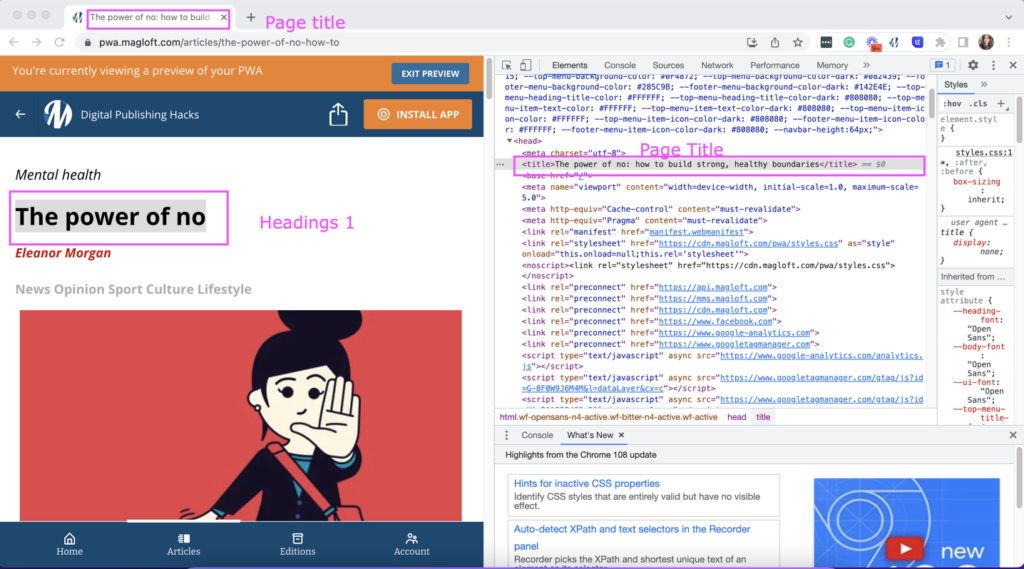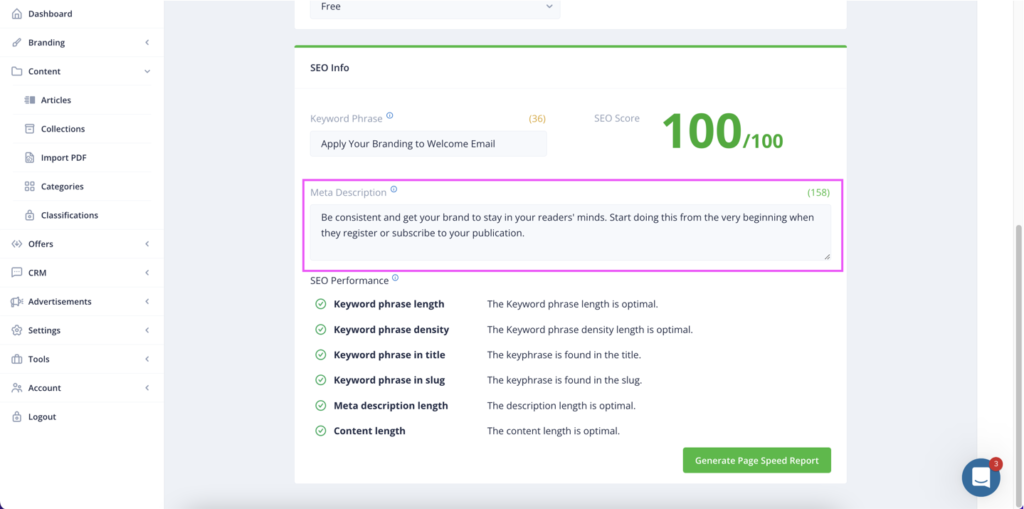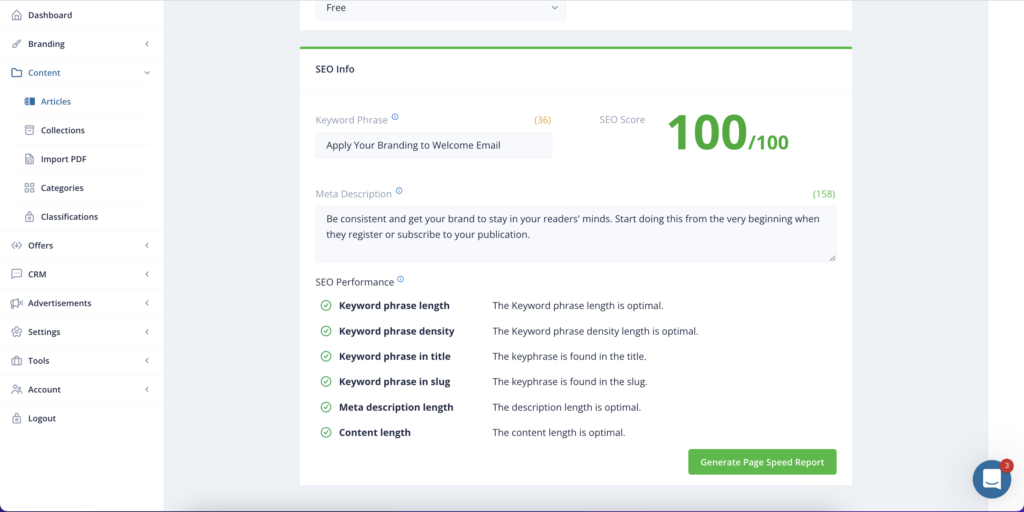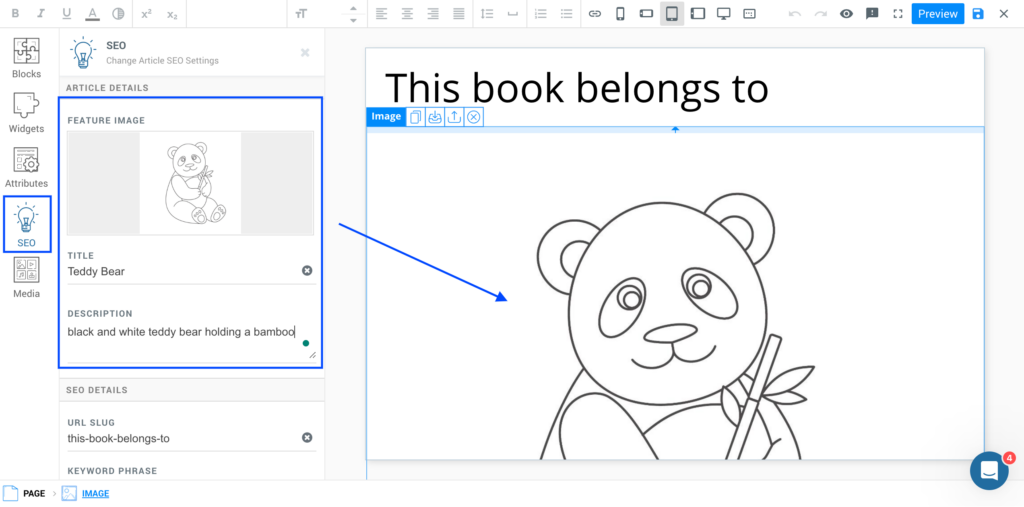Are you struggling to get your website or webpage seen by search engines? Look no further! HTML meta tags are the key to unlocking SEO success. Making it important to convert your PDF content to HTML. In this article, we’ll explain why HTML meta tags are essential for SEO, which ones are most important, and how to implement them for maximum impact.
Why HTML Meta Tags are Essential for SEO

HTML meta tags are essential for SEO as they provide information about a webpage to search engines. This includes attributes such as title, description, and keywords that help search engines understand the content of the page. Additionally, using alt text for images and implementing canonical tags can improve crawling and indexing by providing clear signals to search engines.
Including relevant and accurate HTML meta tags can increase your chances of ranking higher in related searches, making them essential for SEO.
Overall, HTML meta tags play a crucial role in optimizing your website’s visibility on search engine results pages. By including relevant and accurate meta data in your code, you can increase your chances of ranking higher in searches related to your business or industry. So don’t overlook the power of HTML meta tags in boosting your SEO success!
What are HTML Meta Tags
HTML meta tags are snippets of code that provide information about a webpage to search engines and browsers. They include attributes such as the title, description, and keywords of the page. Search engines use this information to determine if a page is relevant to a user’s search query and display it in the search results accordingly. The use of proper HTML meta tags can greatly improve a website’s SEO ranking.
One important attribute that can impact SEO is the canonical tag, which tells search engines which version of a webpage should be prioritized in case there are multiple versions or URLs for the same content. Alt text for images is another important attribute that helps visually impaired users understand what an image represents while also providing additional context for crawlers when indexing your site. Overall, implementing HTML meta tags correctly can help your website rank higher on search engine result pages and attract more organic traffic to your site.
Types of HTML Meta Tags
Title tags, meta descriptions and header tags are all types of HTML meta tags that impact SEO. Title tags are displayed on the browser tab and in search engine results as the clickable headline for a webpage, making it one of the most important on-page SEO factors. Meta descriptions provide a brief summary of what a webpage is about, helping to increase click-through rates from search engine results pages. Header tags (H1-H6) denote headings and subheadings within content, improving readability for users and providing structure for search engines crawling your site. Proper use of these meta tags can greatly improve your website’s visibility on search engines.
In addition to title tags, meta descriptions, and header tags there are other HTML attributes that impact SEO such as alt text which describes images for visually impaired readers or browsers that cannot display images properly. The canonical tag is used to prevent duplicate content issues when multiple versions of the same page exist with different URLs leading back to them; this helps avoid confusion for both crawlers and visitors alike while still allowing people who want access through specific links access without penalty in rankings due simply being identical copies based solely upon location within their URL string format or any differences found inside source code during processing by Googlebot etc.!
How HTML Meta Tags Impact SEO
HTML meta tags have a significant impact on SEO, including improving click-through rates (CTR), providing context for search engines, and differentiating your website from competitors.
By utilizing attributes such as the canonical tag and alt text, you can ensure that search engines properly crawl and index your site, while also making it more accessible to users with disabilities. With HTML meta tags, you can optimize your website’s appearance in search results pages by providing valuable information to both search engines and potential visitors.
The Most Important HTML Meta Tags for SEO
HTML meta tags are crucial for improving your website’s search engine rankings. The title tag, which displays the page’s title in search results, should accurately describe the content and include relevant keywords. The description tag should provide a brief summary of the page’s content, again using relevant keywords to entice users to click through to your site.
Another important meta tag is the image alt tag, which describes images on your site for those who cannot see them (such as visually impaired users). Including descriptive text and keywords can help boost SEO for these images and improve overall visibility of your website.
Title Tag

Title tag shown on one of MagLoft’s Universal App content
Crafting compelling title tags is crucial for SEO success. Include your primary keyword and a persuasive message that entices users to click through to your website. Keep it concise, informative, and engaging to increase your search engine rankings.
Your title tag is the first impression potential visitors have of your website in the search results. Make it count by using HTML meta tags effectively and creating titles that stand out from the competition. With the right combination of keywords and an attention-grabbing message, you can drive more traffic to your site and achieve greater online visibility.
Description Tag

Meta description on MagLoft’s Universal App
The Description Tag is a crucial HTML meta tag that provides a summary of your website’s content to the search engine. This brief yet informative snippet can determine whether or not someone clicks on your link when browsing through search results. Therefore, crafting an attention-grabbing and keyword-rich description tag can significantly boost your website’s click-through rate and ultimately improve its SEO ranking.
A well-written Description Tag should accurately reflect the content of your page while enticing users to click through to learn more. It should be concise, compelling, and contain relevant keywords that people might use when searching for information related to your topic. With careful consideration of these factors, you’ll be well on your way towards improving both the visibility and credibility of your site in search engine rankings!
Keyword Phrase

Inserting keyword phrase on MagLoft’s Universal App
Maximizing the potential of HTML meta tags for SEO is crucial in boosting your website’s search engine rankings. The keyword phrase, specifically, plays a significant role in telling Google and other search engines what your page is about. By including relevant keywords that align with your content, you increase the chances of appearing on top of search results – ultimately driving more traffic to your site.
With billions of websites competing for online visibility, leveraging HTML meta tags becomes even more critical. Business owners seeking to stay ahead of their competitors must take advantage of every possible opportunity to improve their website’s SEO score through optimized meta tags.
Image Alt Tag

Adding Image Alt Tag on MagLoft’s drag-and-drop editor, Typeloft.
Crafting descriptive and relevant image alt tags can have a significant impact on your website’s search engine optimization (SEO). Alt tags are HTML attributes that provide text descriptions of images on a webpage, giving search engines insight into the visual content and its relevance to the page. By using targeted keywords or alternative keywords in image alt tags, you can increase the likelihood of appearing in relevant search results and attract more organic traffic to your site.
However, the benefits of image alt tags go beyond SEO. They also play a crucial role in ensuring your website meets ADA compliance guidelines, which require website owners to make their content accessible to all users, including those with disabilities.
Don’t overlook the importance of well-crafted image alt tags. They not only enhance accessibility for visually impaired users but also contribute to your website’s overall SEO ranking. Make sure to accurately describe each visual element on your page, and include relevant keywords that align with your content strategy and target audience. With thoughtful image alt tags, you can improve both the accessibility and visibility of your website.
How to Implement HTML Meta Tags for SEO Success
Make sure to include relevant and unique meta descriptions, title tags, and header tags on each page of your website to optimize it for search engines. Your meta description should be a short summary of the content on the page, while your title tag should accurately reflect the topic. Additionally, using header tags (H1-H6) throughout your content will make it easier for both users and search engines to understand its organization.
There are many tools available online that can help you implement HTML meta tags more efficiently. From free options like Google Search Console’s HTML Improvements report to paid software specifically designed for SEO optimization such as SEMrush or Moz Pro — these tools can provide insights into which areas need improvement and how best practices vary across different pages or topics. By utilizing these resources in combination with proper tagging techniques, you’ll see improved rankings over time!
Best Practices for Using HTML Meta Tags
Choose relevant and specific meta tags that accurately describe your content. Be sure to include the most important information first and avoid using irrelevant or misleading tags.
Keep your meta tags concise by sticking to the recommended character limits for each tag. This ensures that search engines can easily read and understand your content without getting bogged down in unnecessary details.
Include target keywords in your meta tags, but be careful not to overuse them. Use variations of your main keyword throughout the page to ensure a natural flow of language and avoid keyword stuffing.
- Choose relevant and specific meta tags
- Keep your meta tags concise
- Include target keywords in your meta tags
Tools for Implementing HTML Meta Tags
Google Tag Manager, Yoast SEO plugin for WordPress, and SEMrush are powerful tools for implementing HTML meta tags to increase your website’s search engine ranking. These tools offer an easy and efficient way of managing your meta tags without having to code them by hand.
Here are some benefits offered by each tool:
- SEMrush: allows you to analyze competitor websites’ meta tagsand help create effective ones for your own site.
- MagLoft’s Universal App: with PDF to HTML Conversion tool, you can easily convert your digital publications from PDF to HTML, making them crawlable by search engines and discoverable by readers. This tool also allows you to add HTML meta tags to your digital content, further increasing its SEO potential
- Google Tag Manager: helps manage various tracking codes including meta tag implementation with ease.
By using these powerful tools, business owners can easily implement HTML meta tags that will result in better visibility of their website or webpage on search engines like Google.
Conclusion
In conclusion, utilizing HTML meta tags is a crucial and effective strategy for improving search engine rankings. By carefully crafting title tags, meta descriptions, and other relevant elements, businesses can optimize their website to attract more organic traffic. Furthermore, implementing these tactics doesn’t require advanced technical knowledge or significant resources – it’s an accessible and cost-effective way to boost SEO success.
In summary, if you’re a business owner looking to improve your online visibility and increase customer engagement through search engines, investing in HTML meta tags should be high on your priority list. Take advantage of the power of these simple yet impactful elements to enhance your website’s performance and drive meaningful results for your business.
